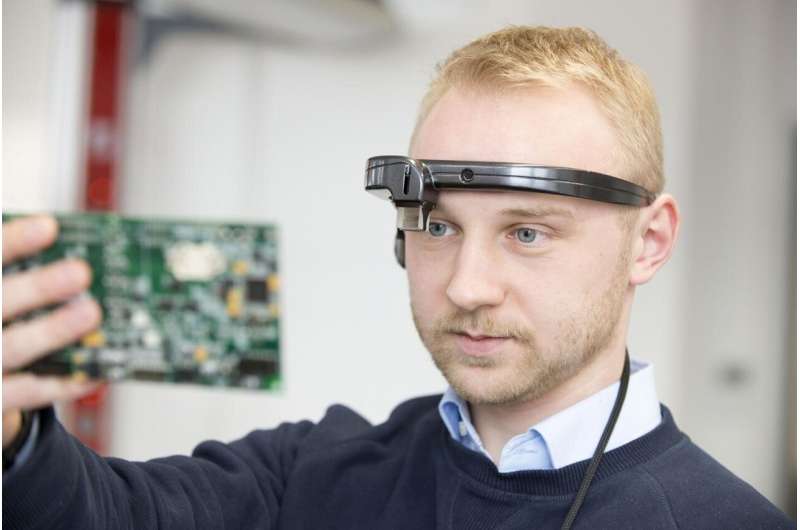AI supports assembly specialists

Artificial intelligence (AI) enables machines to recognize objects. For this purpose, large amounts of high-quality image data are required to manually train the algorithms. Kimoknow, a startup established at Karlsruhe Institute of Technology (KIT), has now developed a technology to automate this training. The first use case: A digital assembly assistant for contact-free cooperation of humans and machines. It is tested in cooperation with Elabo GmbH at the Center for Artificial Intelligence Talents (CAIT).
"Training of AI systems for the recognition of objects still is time-consuming, inflexible, expensive, highly environment-dependent, and associated with a high computation expenditure," says Lukas Kriete, one of the founders of Kimoknow. For this reason, the startup of KIT uses image data that are generated anyway for all objects in computer-aided development processes (CAD) and pro-duction data management (PDM). These data, among others, in-clude information about the material, geometry, and position of the object. CAD and PDM data are extracted and used for automatic training of the AI.
The trained object recognition system can be used for many pur-poses, among others, in augmented reality (AR) glasses. They cap-ture relevant objects in the field of view of the user in real time and additionally possess the necessary context information on the ob-ject. As the first use case of such AR glasses, Kimoknow devel-oped an assistant to support specialists in the assembly of com-plex devices. The virtual assistant guides users through the com-plete assembly process, visualizes the assembly instructions step by step without an additional display, and shows in which order which part is to be assembled with which tools and assembly mate-rials. It repeats certain steps, if errors occur, and documents the process. The mechanic has both hands free and communicates with the system via eye contact, hand signal, or voice command. "The assembly assistant makes the process more efficient, productive, quicker, and less expensive, while quality is improved," Kriete says.
The assistant is suited for all industries producing small numbers of highly complex products. The prototype is applied for final assem-bly of highly specialized measurement instruments and presently being tested in cooperation with Elabo GmbH at the Center for Arti-ficial Intelligence Talents (CAIT) of KIT's Institute for Information Management in Engineering (IMI).
Kimoknow is a startup of IMI and was established on May 13, 2020 as a limited-liability company. Apart from Lukas Kriete, Roman Wie-gand, Aaron Boll, Michael Grethler, and Vesa Klumpp are members of the team of founders.
Center for Artificial Intelligence Talents (CAIT)
The Center for Artificial Intelligence Talents (CAIT) specifically supports talented researchers who combine methods of artificial intelli-gence and engineering. Apart from the infrastructure, resources, and training formats, it allows to test new developments and ideas under real operation conditions and in cooperation with potential users. This accelerates transfer to practice. The concept focuses on humans and their interaction with artificial intelligence. "It is not new technologies that change the world, but the people using these technologies," says the Head of CAIT, Professor Jivka Ovtcharova. Researchers and startups are given the opportunity to develop new AI technologies closely to the market. Companies profit from the know-how of these talents and from latest research results. "This is a win-win situation and an optimum model for the collaboration of science and industry," Ovtcharova points out.
Under the direction of Jivka Ovtcharova, CAIT of IMI was opened in June 2019 to implement the concept of the Lifecycle Engineering Solutions Center (LESC) operated until that time with a focus on AI. Apart from Elabo GmbH, abas Software AG and SolidLine AG are among the partners of CAIT.


















